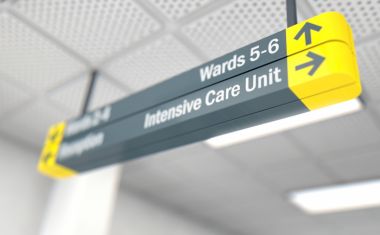Court of Appeal overturns anonymity for doctors in end-of-life cases

The Court of Appeal has ended life-long anonymity protection for doctors in end-of-life cases.
The legal challenge was brought by parents, Dr Rashid and Dr Aliya Abbasi, and Lanre Haastrup, whose children died after their life support was turned off against their wishes.
In both cases, the hospital trusts involved had obtained injunctions preventing the parents from naming the doctors overseeing their children's treatment, or from speaking fully about their experiences.
The ruling in the Court of Appeal on Friday overturns a previous High Court judgment by President of the Family Division Sir Andrew McFarlane upholding anonymity.
In its judgment, the Court of Appeal said that the rights of parents took precedence.
"The intense focus on the specific rights being claimed delivers the clear conclusion that the article 10 rights of the parents in wishing to 'tell their story' outweigh such article 8 rights of clinicians and staff as may still be in play," the court said.
The court also rejected the claims of the hospital trusts that lifting anonymity would have a negative effect on morale within the NHS and on the recruitment and retention of staff.
The ruling continued, "We are aware of no Strasbourg case which has come close to allowing concerns about morale, recruitment or general well-being of health staff to provide a justification for curtailing the right to free expression about individual experiences whilst being cared for, or on matters of general public interest."
Under the ruling, future injunctions in such cases will only be permitted if there are the most compelling of reasons.
The Christian Legal Centre (CLC), which supported the parents, called the ruling "groundbreaking" and said it would have "widespread implications for the press reporting of all legal proceedings".
Welcoming the judgment, Dr Rashid Abbasi and Dr Aliya Abbasi, said: "Our family has suffered so much due to the actions of the hospital.
"As doctors ourselves we were aware of the medical gaslighting and the appalling mistreatment our daughter was subjected to but we were rendered powerless to take effective action by the injunctions the hospital obtained which served only to protect a toxic culture which puts doctors' interests before those of their patients.
"The transparency which the Court of Appeal has endorsed will ensure proper accountability within the medical profession and help restore ethical standards and public trust in the NHS."
Mr Haastrup said, "Finally there will be justice for Isaiah, because his story can now be told.
"There will be justice for his parents who can now finally share their experiences with the world, and also justice for society because shining the light of truth on what happened to Isaiah will ensure that in future other families will not have to suffer what we went through."
Andrea Williams, chief executive of the CLC, said: "It is very reassuring that the Court of Appeal has set proper limits to the secrecy of family courts proceedings.
"Withdrawal of life support from a child is the gravest decision which the doctors and judges can ever make. Transparency is essential to ensure proper scrutiny of those decisions by the public and especially by the medical profession.
"We know from experience that even in cases of bitter disagreements between families and doctors, most families have a lot of praise for health professionals who had done their best for their child. There may sometimes be criticisms of particular actions by particular doctors.
"Even if those criticisms are sometimes unfair, the best way to dispel them is public scrutiny and open debate. Professionals who have done nothing wrong have nothing to fear from transparency."











